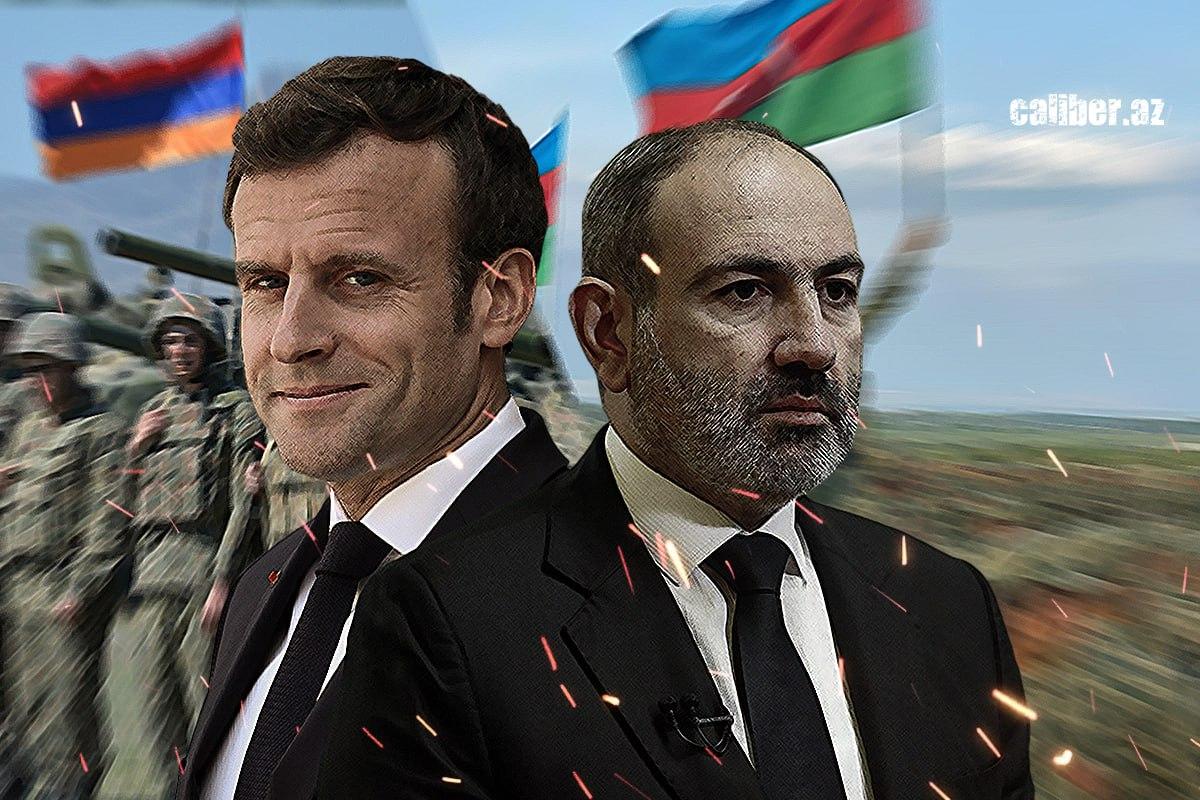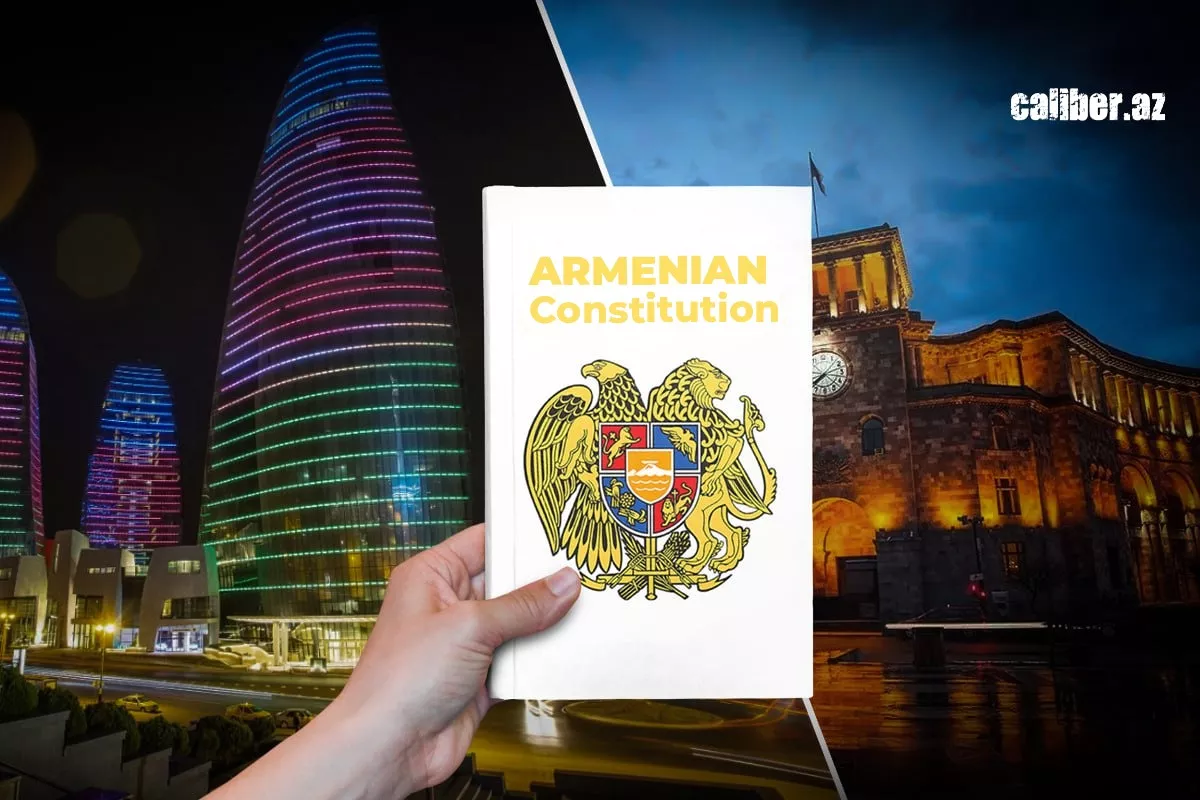UK, France chart divergent paths in South Caucasus: Strategic divide Article by EU Reporter
The EU Reporter has featured an article by Ukrainian political analyst Taras Kuzio, examining the divergent strategies pursued by the United Kingdom and France in relation to the South Caucasus. Caliber.Az offers its readers selected excerpts from the piece.
"Britain and France, acting on behalf of the European Union (EU), have pursued different approach to the South Caucasus. Britain is the biggest foreign investor in Azerbaijan. France has the second-largest Armenian diaspora in the West, following the US, and has been accused of being a vocal supporter of Armenia. France is the only European country with a large Armenian diaspora that has remained heavily involved in Armenian politics and foreign policy and disinclined to support reconciliation with the country’s two neighbours, Azerbaijan and Türkiye," writes Taras Kuzio.

The roots of the different British and French approaches lie in their attitudes to the EU. Britain supported widening (i.e., enlargement) towards Ukraine and the South Caucasus and backed Türkiye’s membership. Meanwhile, the French supported deepening of the EU, were cool towards the bloc’s enlargement to Ukraine and the South Caucasus and did not support Türkiye joining.
These major differences between how the British and French approach the South Caucasus have been growing in the last few years. The UK, although not a co-chair of the OSCE Minsk Group, pursued peace talks through the Consortium Initiative in 2003-2009, as part of the Department of International Development’s Global Conflict Prevention Tool.
The British, although pro-Azerbaijani, have tended to be more even handed and have backed US involvement in the peace process. UK Foreign Minister Leo Docherty visited three South Caucasian countries in November 2023 where he voiced British support for peace talks leading to a long-term settlement, supported their sovereignty and security and backed their desire to end decades of conflict and sign a peace agreement.
The French have oriented towards Armenia and been critical of Azerbaijan’s growing security relationship with Türkiye. In 2022-2023, ‘Europe appeared to miss its opportunity to successfully insert itself within the mediation and as a result has become a bystander to regional dynamics.’ Azerbaijan has long accused France of bias towards Armenia. Co-Chair France, one of three co-chairs (alongside the US and Russia) of the OSCE Minsk Group held a pro-Armenian stance while US involvement went AWOL until Donald Trump’s election in 2024.
Azerbaijan has long accused France of bias towards Armenia. Co-Chair France, one of three co-chairs (alongside the US and Russia) of the OSCE Minsk Group held a pro-Armenian stance while US involvement went AWOL until Donald Trump’s election in 2024.
Baku has pressured Armenia to jointly call for the dissolution of the OSCE Minsk Group. Although existing since 1992, the OSCE (Organization for Security and Cooperation in Europe) Minsk Group was ineffective in resolving the Armenian-Azerbaijani conflict and negotiate the ending of Armenia’s occupation of one fifth of Azerbaijan.
Armenia’s occupation only came to an end in 2020 through military force when Azerbaijan defeated Armenia in what has been called the Second Karabakh War. This was followed by Azerbaijan and Armenia largely on their own, but with the backing of the UK and US, negotiating a peace agreement.
Russia has been sidelined from the South Caucasus since Armenia’s defeat in the Second Karabakh War in 2000. Armenia suspended its membership in the CSTO (Collective Treaty Organisation) accusing Russia of not organising it to provide military support.
In April 2024, after Azerbaijan retook the Karabakh region which had been under Armenian separatist control, Russia’s so-called ‘peacekeepers’ withdrew from the South Caucasus. In March 2025, Russian border guards (which come under the control of the Russian FSB [Federal Security Service]) were withdrawn from Armenia’s borders with Türkiye and Azerbaijan. Nevertheless, Russia continues to have two military bases in Armenia.
The Soviet Union’s and Russia’s transit of gas through Ukraine, which had taken place since the 1970s, came to an end in December 2024. With the signing of an agreement between Naftohaz Ukrayiny and the Azerbaijani state gas company SOCAR, Azerbaijan is beginning to supply gas to Ukraine via the Trans-Balkan corridor through the territories of Bulgaria and Romania.
Since February 2023, with an extension until 2027, Brussels is deploying a civilian EU Mission in Armenia to ostensibly support peace and stability in the South Caucasus. The mandate of the EU mission is unclear. The claim by some Armenian media and think tank of an Azerbaijani threat to Armenia’s territorial integrity is another example of disinformation.
Another canard is Azerbaijan assisting Russia in breaking Western sanctions. In fact, four former Soviet republics – Georgia, Armenia, Kyrgyzstan and Kazakhstan – are the main transition countries for the re-export of Western and Chinese goods to Russia. At the same time as Armenia has publicly distanced itself from Russia, Armenian-Russian trade has skyrocketed.

Azerbaijan has pursued, with the backing of the UK and USA, of Armenia recognising the December 1991 Alma Ata Declaration where Soviet republican boundaries became international borders.
Azerbaijan is insisting that Armenia remove from its constitution an article that lays territorial claim to Karabakh.
The UK could play a pivotal role to resolve this by Armenia encouraged to look to the example of Ireland. The three-decade long sectarian conflict (dubbed ‘The Troubles’) ended in Northern Ireland with the 1998 Good Friday Agreement and Ireland holding a referendum in May of that year to change the constitution so that the Irish republic no longer laid territorial claim to the north. Armenia’s 1995 constitution, which was revised in 2015, could also be changed in a referendum that asked Armenians to drop territorial claims to Karabakh.
This step is facing greater resistance in Armenia than it did in Ireland. Armenians who are opposed to the concept of ‘peace at any cost’ are opposed to ending Armenia’s emotional attachment to Karabakh. In September 2024, a nationalist coup was quashed in Armenia. The coup plotters had the support of discredited pro-Russian political forces who had run Armenia until the 2018 democratic revolution, Armenian-Russian oligarch Samvel Karapetyan and, ominously, hierarchs in the Armenian Apostolic national Church.
The EU and Russia have been largely sidelined by the US and UK in bolstering difficult negotiations between Azerbaijan and Armenia towards a peace treaty that would overcome over three decades of conflict between them. With Iran weakened by Israeli military strikes, Russia embroiled in a gruelling war in Ukraine, and the EU still unable to convert its large economic power into security influence, Türkiye is probably set to benefit the most from a peace agreement.
All three countries in the South Caucasus will benefit from the peace agreement that is close to being signed by Armenia and Azerbaijan. Armenia has a historic chance to become independent of Russia by normalizing relations with Türkiye and accelerating EU integration and EU-mandated democratic reforms. The South Caucasus has a historic chance to develop independently outside Russian and Persian spheres of influence.








